Chapter 3
Kathi & Manu
—
A little window into the down-to-earth Austrian flower farmers’ life and strife.
Hopping on a surprisingly rickety regional train from the city’s centre, we headed to Vienna’s outskirts to meet up with Blumenbund co-founders and long-time friends in their hometown, Gänserndorf. With Kathi’s 3-year-old daughter Linda in tow, we piled into Manu’s car and headed over to Kathi’s lovingly renovated countryside home to talk flowers, farming and family life, before paying their flower farm a visit. Each had her own story to tell.
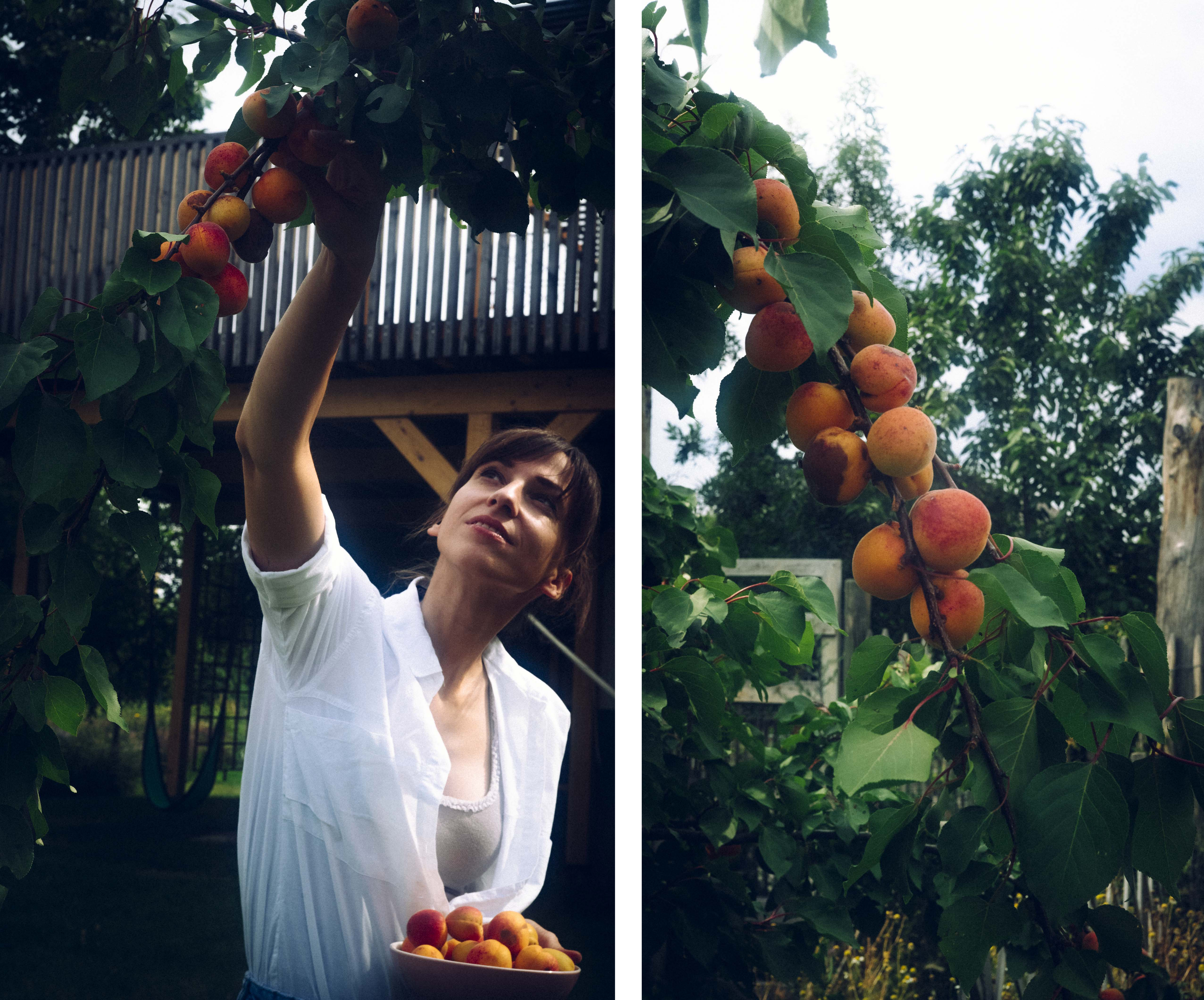
The visionary night owl
Brimming with creative energy, Kathi spends evenings on-end drawing up innovative ideas for driving their business forwards. Once the sun has set and Linda is tucked safely into bed, she forages the depths of the internet for the most beautiful blossoms she can get her hands on. When she’s not busy tackling the demands of first-time motherhood, Kathi’s most-likely to be found managing Blumenbund’s distribution channels and capturing the fruits of their farm’s loins with her trusty camera. Helped by a shelf-full of botany books, she relies heavily on trial and error as she grapples with the ins and outs of running an agricultural business. Describing herself as a religious note-taker, Kathi diligently tracks every single plant’s failures and accomplishments every step of the way.
The hardworking honeybee
You don’t have to spend a lot of time with Manu to sense that she’s a doer through and through. Before joining forces with Kathi, a string of unfulfilling desk jobs had left her relentlessly frustrated. Learning about her previous struggles made it all the more delightful to listen to her describe the instant gratification she felt from the minute she slipped on her gardening gloves and pressed Blumenbund’s very first tulip bulp into the soil. Not one to shy away from physical labour, countless days at the farm have demanded her relentless nurturing, attention and dedication. As a morning person on a mission, Manu hops out of bed before her alarm sounds, readier than ever to start the day sowing and weeding. She’s quipped with a smile that stretches from ear to ear, and her can-do spirit is as contagious as it is refreshing.
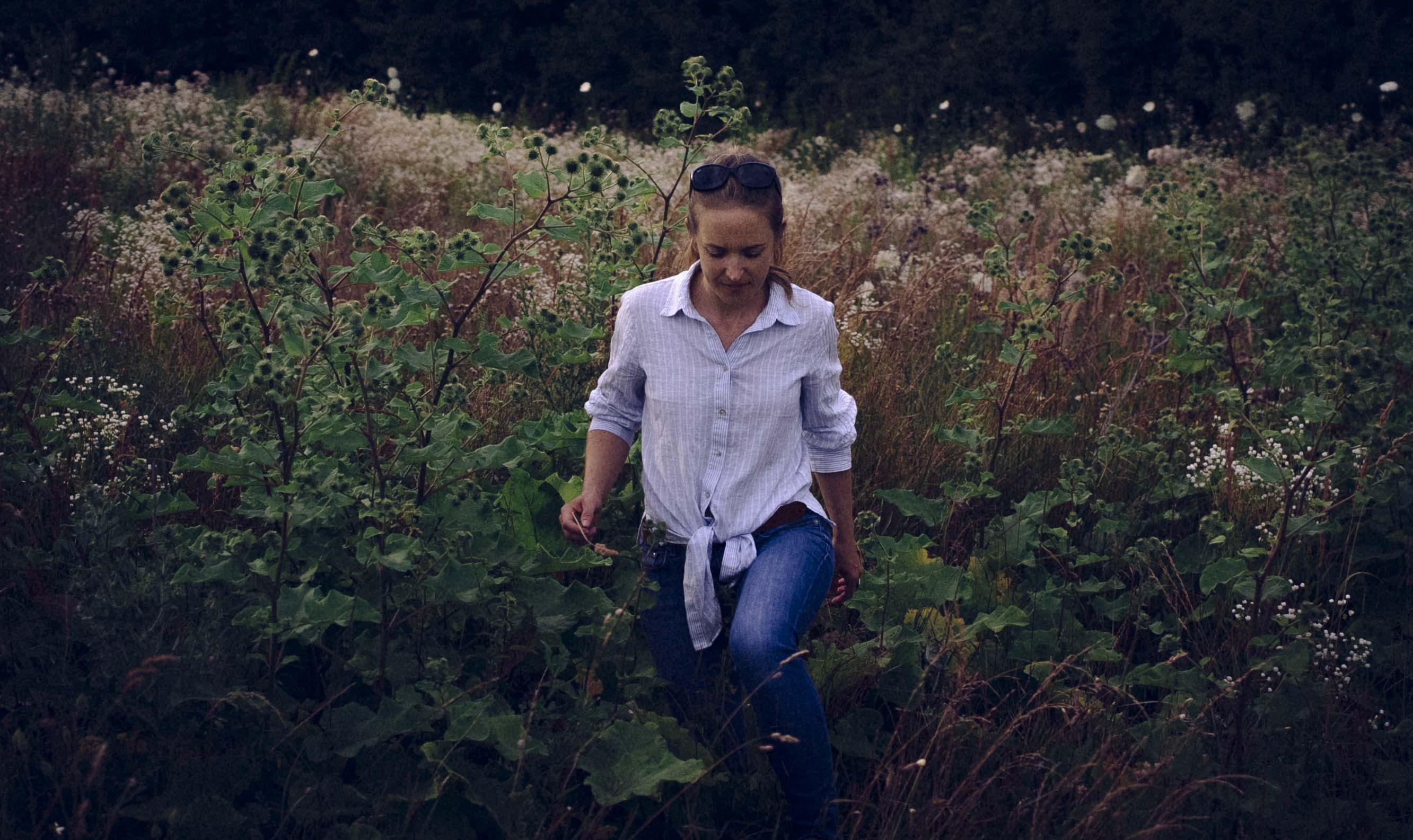
Kathi, tell me a little bit about your journey from photography to flower farming.
Kathi: I studied graphic design at the University of Applied Sciences for Multimedia Art in Salzburg, and went on to dabble in freelance work as a designer for a bit, before pursuing a further degree in photography in Vienna. I’m a visual person, I love displaying things in beautiful ways, but at my core, I’m from the countryside. I lived in Vienna for 8 – 9 years before my husband and I bought and renovated this house in Gänserndorf. I guess I’ve returned back to my roots in that sense, back to the land. I come from a long line of farmers, and though I always had an interest in agriculture, I was never one to churn 30 hectares of land with a tractor. Until the flower farm idea. From that moment onwards, I was hooked.

I made some inquiries at the Chamber of Agriculture and it was all GO GO GO from there. It was around the same time that I first reached out to Manu. Her first response was, “Kathi, it’s an amazing idea, I truly do think it’s fantastic, but I’m not a farmer and I’m also not the type of person to drift across the open sea not knowing where I’m headed.” I completely understood and decided I’d just have to have a go at it on my own. I spoke to my uncle who immediately agreed to lease me a piece of his land.
Things were just starting to take shape when, in early July last year, I was diagnosed with a delayed form of type 1 diabetes. I spent a lot of time waiting around as an outpatient; learning how to give myself injections, learning about carbohydrates. As I sat there, I began watching my flower farm idea slowly slip away—I knew it would not only be a ton of work, but also physically demanding. I no longer felt like I could tackle it alone. And then, out of the blue, came Manu’s SMS, and I thought to myself, “I guess it was meant to be.” So we went for it.
Why the change of heart, Manu?
Manu: My biggest goal in life was always to have a family. I got married and bought a house with my husband at a young age. I had my first child when I was 25 and my second followed soon after. I spent 10 years focused on being home with the kids, and felt absolutely fulfilled every step of the way. I’ve loved nothing more than my daily work as a mother and homemaker, but people would always ask me if, deep down inside I didn’t want to have a career.
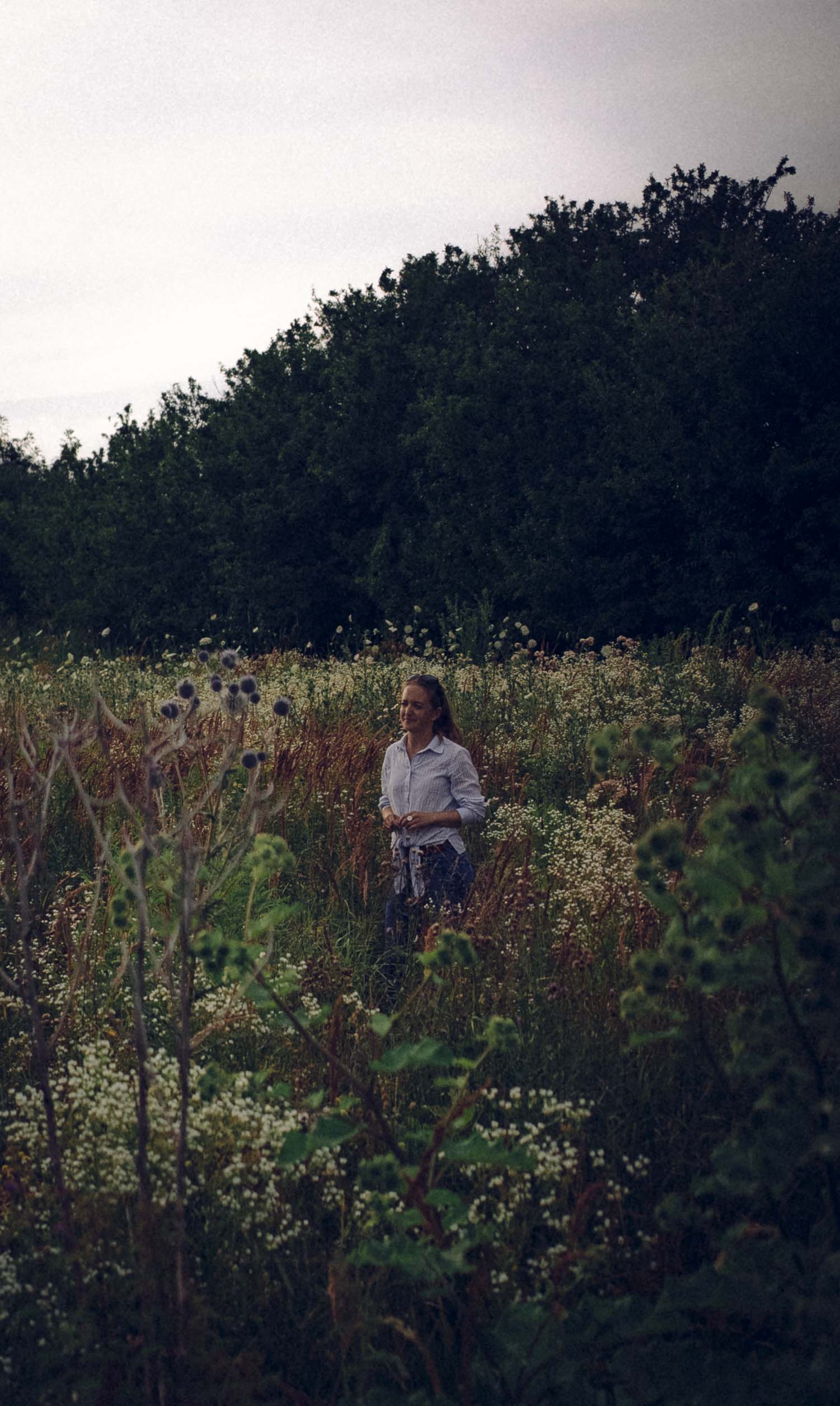
As a teenager I’d completed an apprenticeship as beautician, but I quickly came to realise that I wasn’t really suited for that line of work—I’m more the natural type. So I asked myself what I was good at and, because I’m very structured and organized, I thought I’d be good at office work—Kathi always says I’m somewhat of a monk in that sense—so I ended up taking on a series of more or less boring, part-time office jobs. But they never made me happy. I’d come home in the evenings and think to myself, “If I hadn’t written those last 10 emails, it probably wouldn’t have made the slightest difference.” Especially in my last job, I was pretty miserable.
And then came the day Kathi called me. We’d known each other in school, but we hadn’t seen each other in years. I guess we lost touch with each other somewhere between studying, building houses and having children. I was immediately in love with her business idea, but I couldn’t possibly imagine myself doing something that wasn’t in an office. I kindly declined her offer, but my husband wasn’t ready to let me give up that easily. He just kept repeating, “Why don’t you give it a try? What could be cooler than having the entire world at your feet?” I had just quit my part-time job and was kind of suspended in mid-air. Several weeks later, he and I were at a concert in Vienna and the topic of Kathi’s business idea came up again. After some back and forth he got up and exclaimed, “You know what, I think you should just write to Kathi right now.” So I did. And that was the SMS that got everything rolling.
Neither of you is a farmer by trade. Where did you acquire the skills to run your own flower farm?
Manu: Sadly, almost everything from Austria kind of looks the same, and there wasn’t really anyone nearby we could learn from. But I have to say, when I joined Kathi she already had a pretty solid plan laid out for us. She knew exactly what we needed and had already acquired all this knowledge about plants and plant care.
Kathi: I’m totally a nerd in that sense. I read every flower farmer book I could get my hands on. This concept of locally-farmed flowers isn’t really on people’s radars here. It’s more common in the US where they already have a thriving slow flower movement in place. I guess it makes sense in a country which has every imaginable climate, in other words, everything from cacti to frost-loving plants.
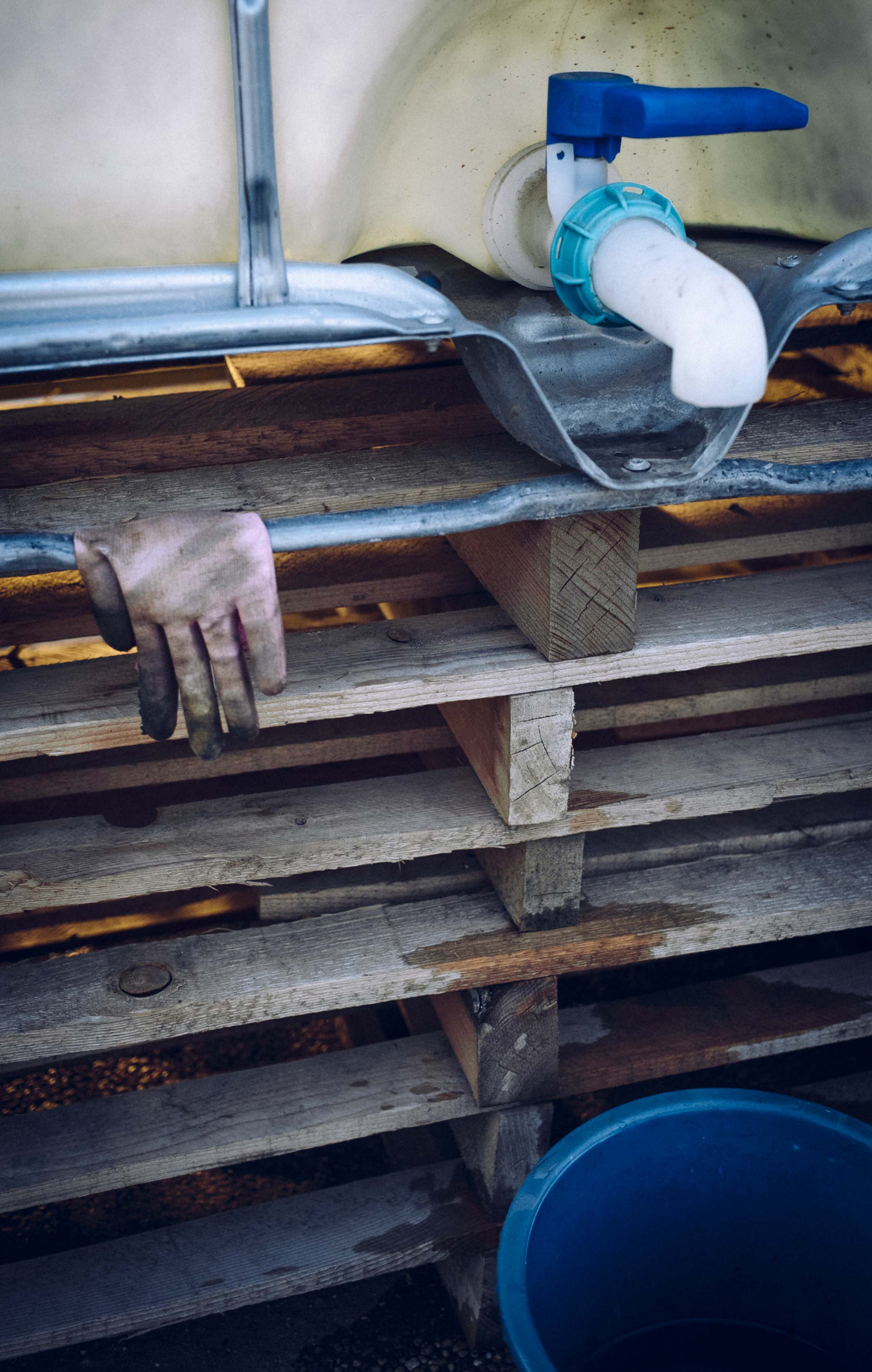

Describe a typical week at Blumenbund.
Kathi: Mondays and Tuesdays Manu takes care of Blumenbund by herself. We’ll sometimes meet at the field in the evenings to take photos, but during the week, my time for Blumenbund is limited to when Linda is in kindergarten. And then there are the night shifts—meaning, when Linda’s in bed—which pretty much last until I also pass out.
But Wednesdays, Wednesdays are always exciting, because that’s when we harvest flowers from our farm and set off to explore the nearby wild fields in search of fillers for our bouquets. We’re really lucky in that sense. All it takes is two steps out the front door and we’re stumbling down dirt roads, discovering all kinds of amazing grasses and blossoms that grow freely. And then Thursdays we tie the bouquets, and Fridays is delivery day, because Fridays and Saturdays our partner stores in Vienna sell the most flowers.
How do you split the workload and various responsibilities?
Kathi: At the moment there are two sides to our work, really. On the one hand, we’re still figuring out how to sell our flowers, figuring out where we fit in. And on the other, we roll up our sleeves and get to work with the agricultural side of our business. While Manu spends hours on end tending to the farm, I focus more on the marketing, graphic design, and business development side of things.
Manu: I’m a thousand times more enthusiastic if Kathi says to me, “Would you mind weeding the entire field today?” versus, “Could you research some new distribution channels online?” Whenever something happens on Instagram…
Kathi: [giggles] “…something happens…”
Manu: …I have to admit, I don’t even look at it. But Kathi, she lives it and loves it—it’s what she’s good at. Just look at our flyers. She gets it. For me, winter was painstakingly dull because we spent every evening in front of our computers. We’d be looking at two types of flowers—one had spikes and the other didn’t—and I would sit there thinking to myself, “I’m pretty sure these are exactly the same.” I’d share my thoughts out loud and Kathi would exclaim, “What?! No, no, no they’re entirely different!” I couldn’t wait to just get out and start work on the field.
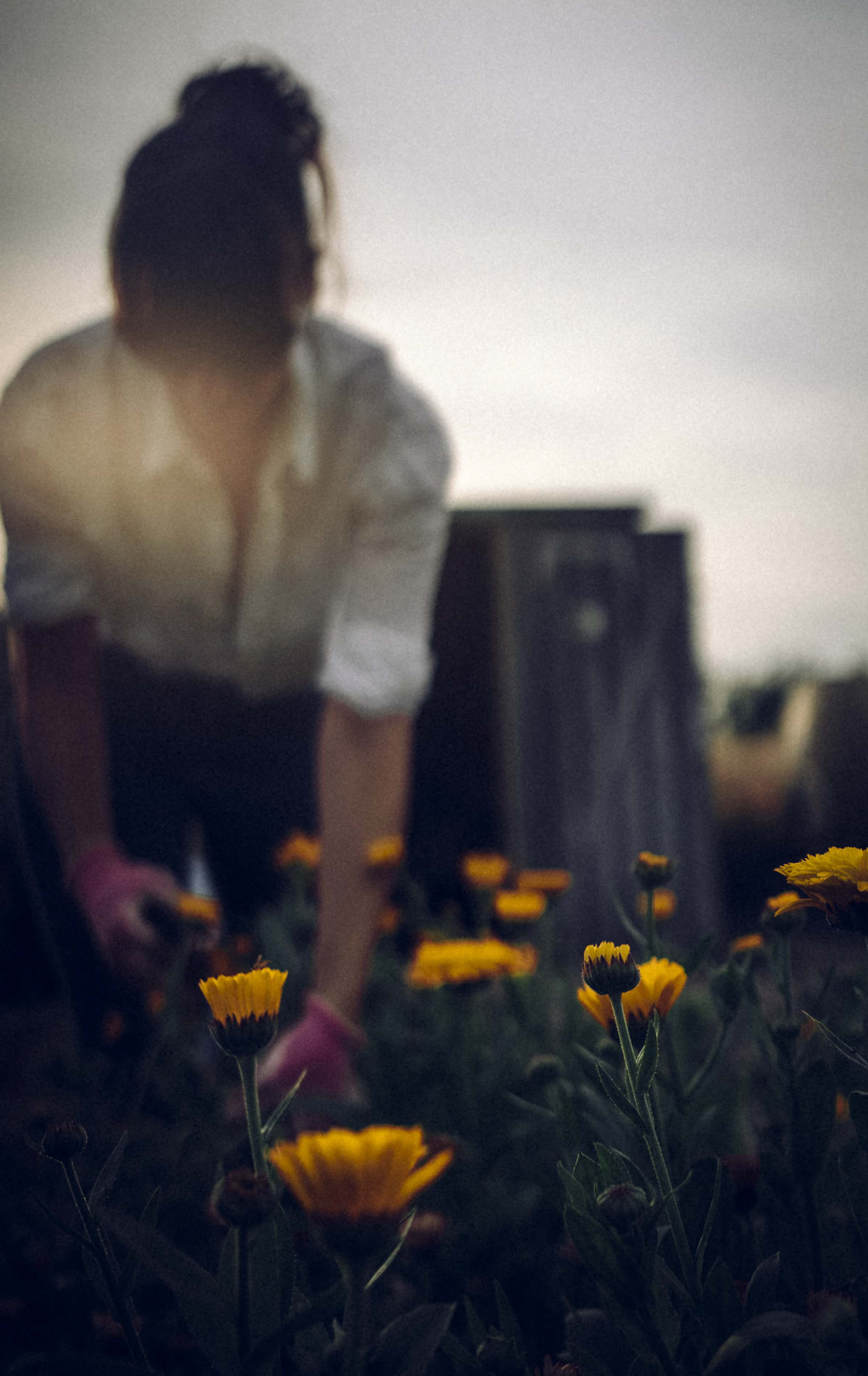
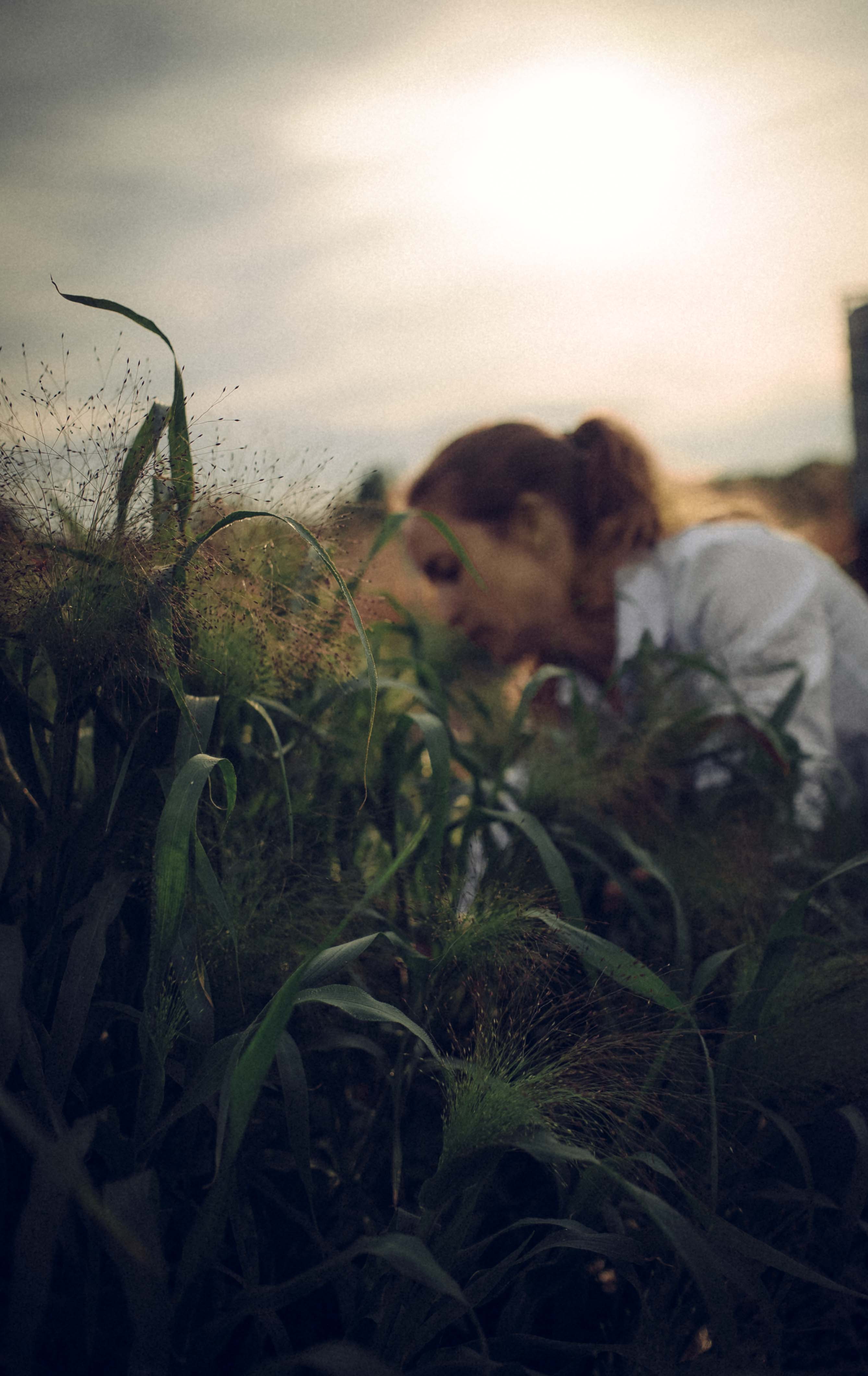
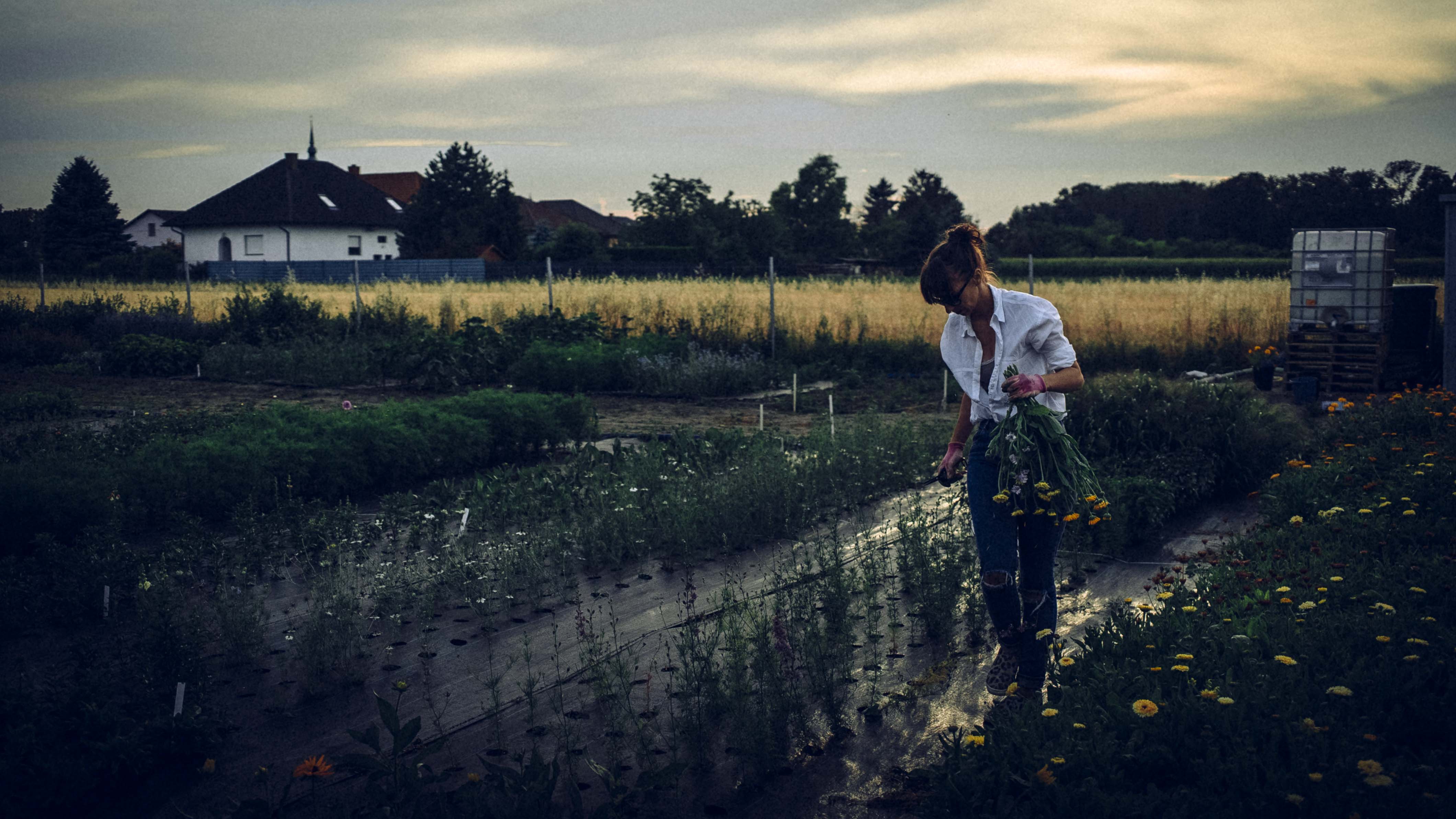

How do people react when you tell them about your new venture?
Kathi: Generally, I’d say people’s responses in Gänserndorf have been quite positive. I’m pretty sure they think we’re a little bit nuts, but not in a bad way. My grandfather, uncle and father are all farmers, so everyone in my family was instantaneously over the moon when I told them. People would say things like, “Wow, this is so cool, we’re so proud of you!” and, “The world really needs this, it’s an amazing idea!”
Manu: Ultimately, there are two types of people; there are those who are head over heels for the business and think what we’re doing is fantastic, and then there are those whose first response is “But what are you going to live off in the winter?” Then you pretty much know that everything that needs to be said has been said.
There was definitely a general lack of understanding in my extended family in the beginning. I’d tell relatives what we were doing and their first reaction was always, “What?! Why on earth would you go out and do something like that? That means you’re going to be working in a field?” They were all pretty appalled. Coupled with my own initial reservations all their negative feedback fed right into my insecurities. To be honest, most of my relatives don’t ask me about it anymore, but they also don’t express their negativity, so I guess people have come to terms with it.
You sell most of your flowers in Vienna, but you recently had a stall at the weekly farmers’ market in Gänserndorf. Tell me a little bit about how these experiences have tied into your concept.
Kathi: Manu would love nothing more than to buckle on a vendor’s tray and go from door to door announcing, “Hey folks, we have the most beautiful flowers in town!” That’s great for us because no one here thinks that way. I definitely had my doubts about selling our flowers in Gänserndorf, because my initial business idea was based on the assumption that there is a much greater demand for our flowers in Vienna, simply because people in the city don’t have access to gardens.
Manu: I have tons of flowers in my garden, but I always used to grab bouquets at the supermarket. I never wanted to cut the ones I was growing outside and confine them to the house. That’s why I’ve always insisted that the people here [in Gänserndorf] will also buy our flowers. I literally jumped for joy when our stall turned out to be a success. It proved that people here are willing to pay the price for our flowers too. That said, you don’t have the same flocks of people passing by as you do at markets in Vienna, such as Karmelitermarkt. Personally, I love everything about markets. I’m a morning person, so I love hopping straight out of bed and loading the car. Kathi’s market enthusiasm is more, “Mhmmmmmmm….”
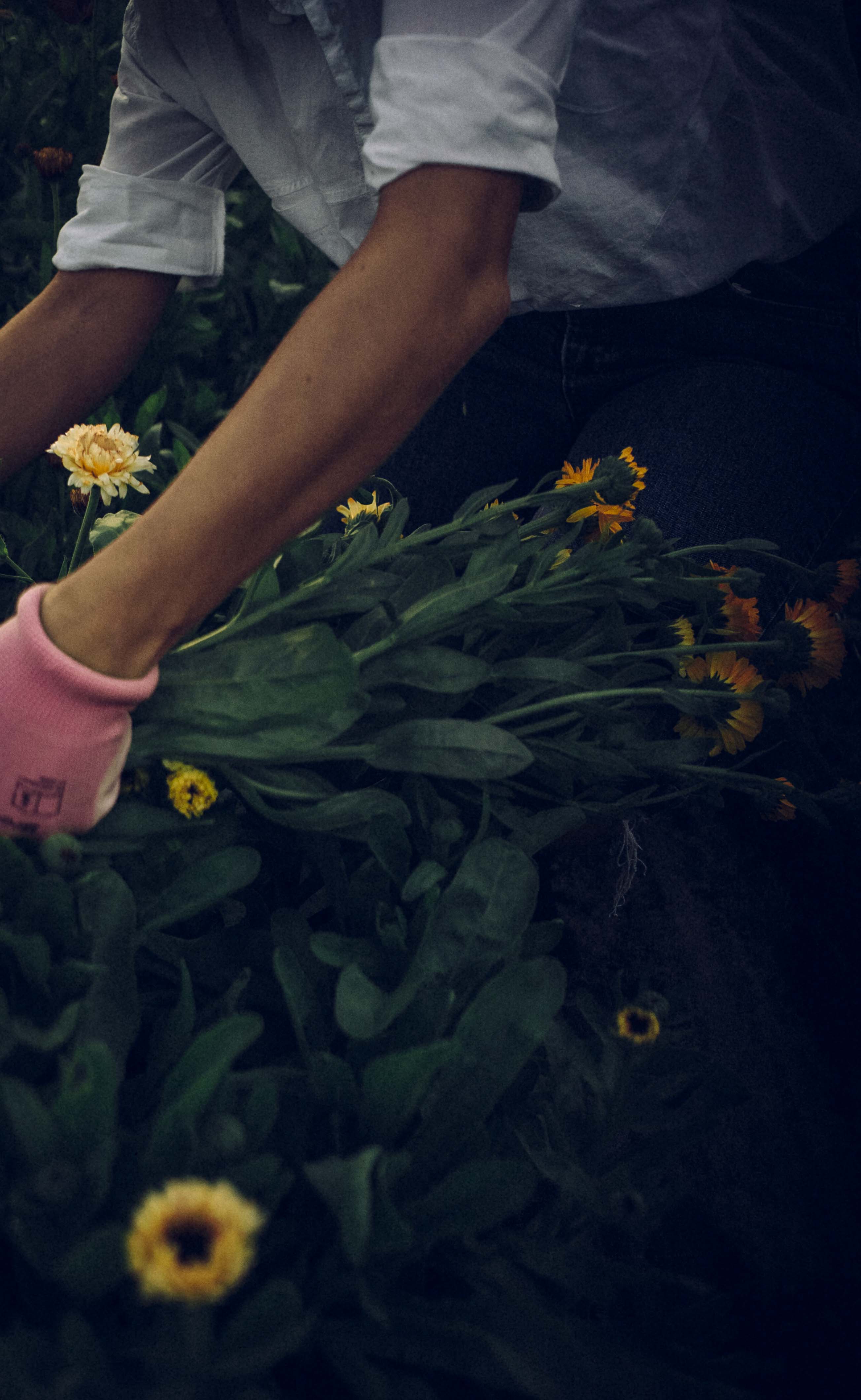
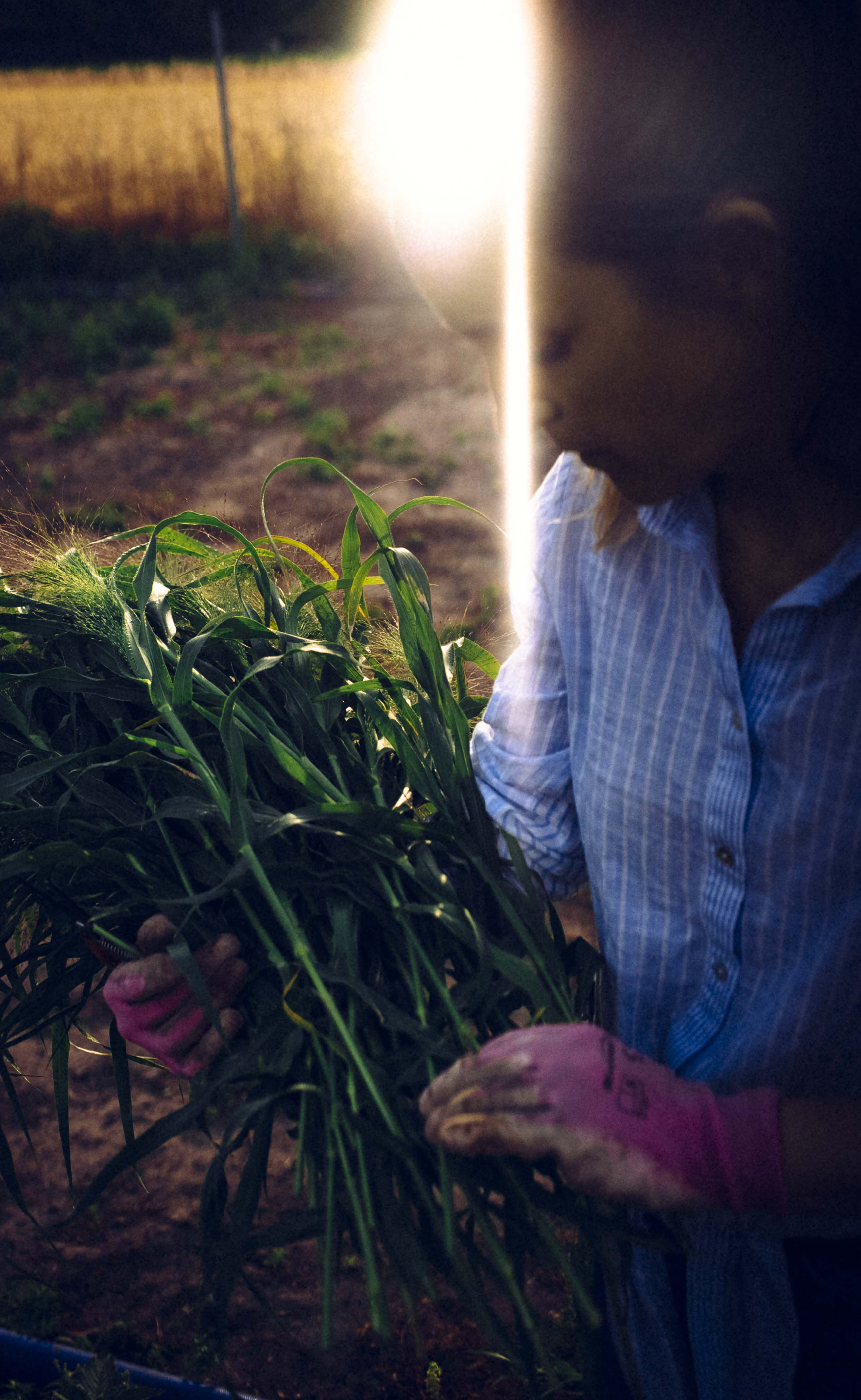
What do you get up to when you’re not busy tending to your farm?
Kathi: I still work as a photographer at the University of Applied Arts 15 hours a week. I don’t have a lot of free time to be honest. Spending quality time with friends and family, that’s my biggest hobby. And sometimes I’ll make it to the cinema. Wow, that sound really sad. [laughs]
Manu: I get to be a taxi driver for my two children, meaning that I spend a lot of time at the football pitch and the music academy. I guess I’m always either headed somewhere or on standby. My husband and I love taking trips together with the kids—we’re out discovering something new almost every weekend.
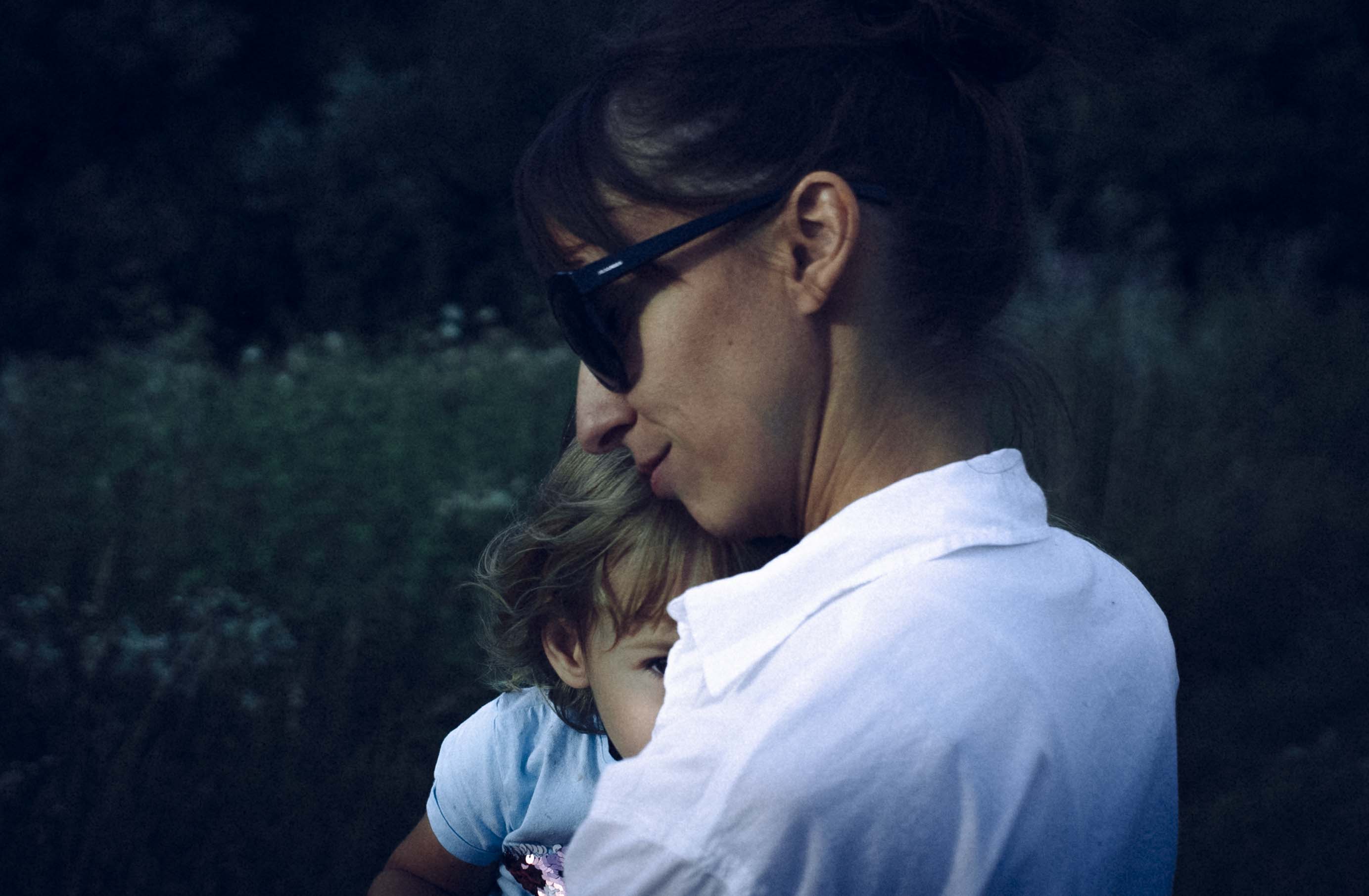
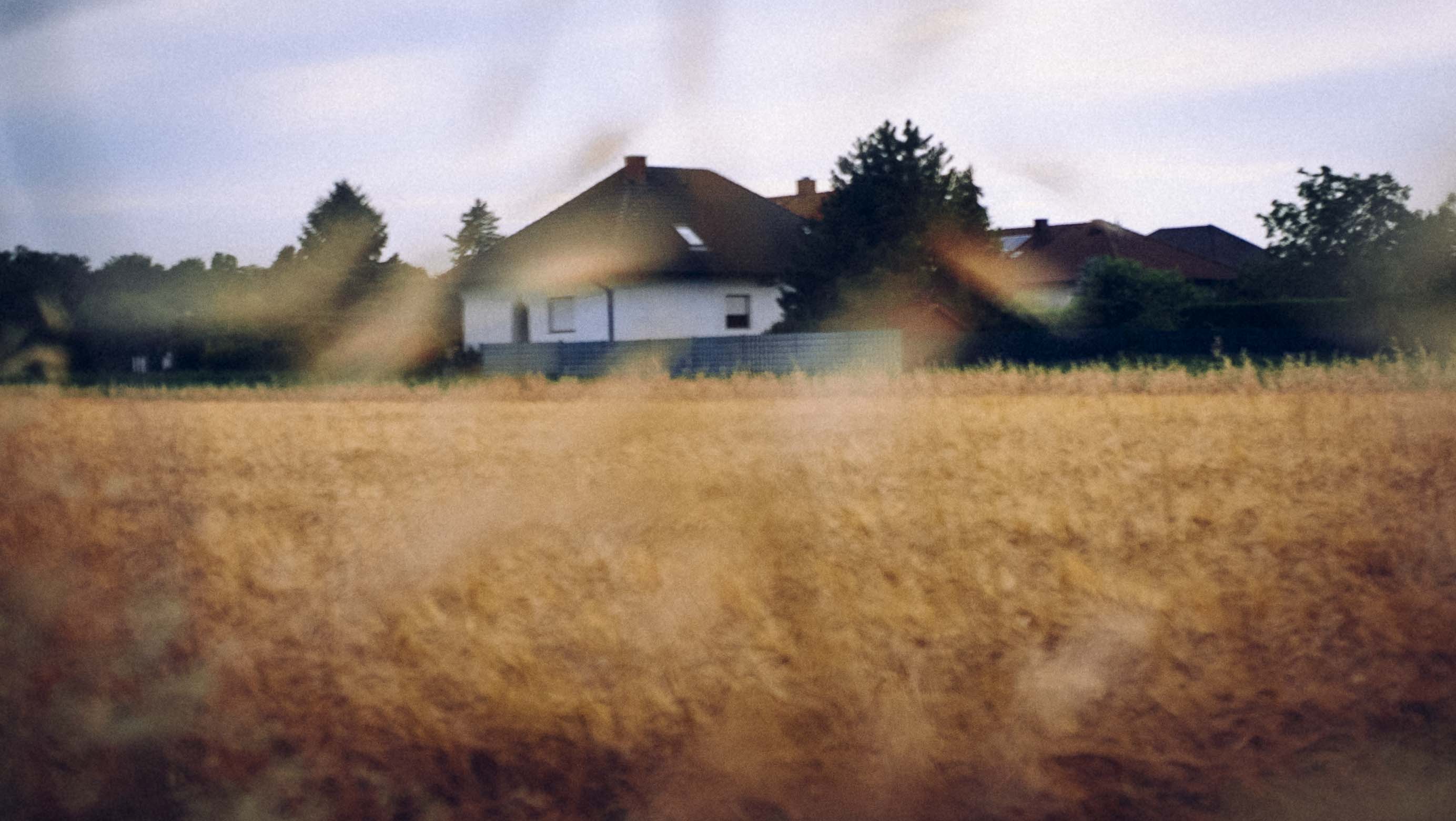
If you were each a flower, what would you be?
Manu: Kathi would definitely be a love-in-a-mist aka a nigella—a somewhat delicate yet full-blown creative—just WOW.
Kathi: For Manu, I immediately thought of a dahlia. Perhaps because I just really love dahlias, or maybe because she’s always beaming. She takes things as they come, and whatever happens, she’s still always flexible and approachable. Dahlias are so perfectly consistent and radiant.
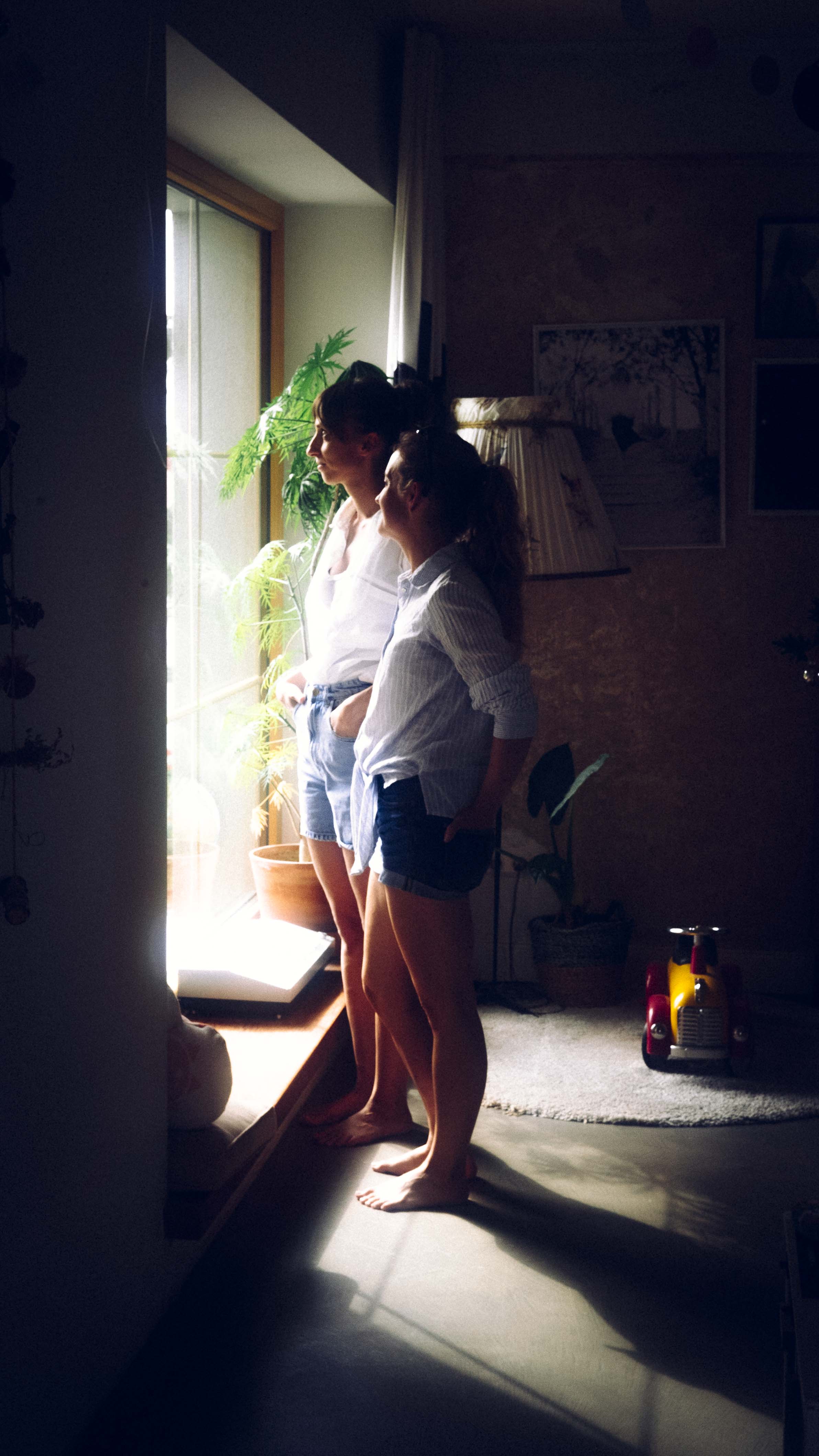

Thank you both.
Interview: Maia Frazier
Video & images: Daniel Eceolaza